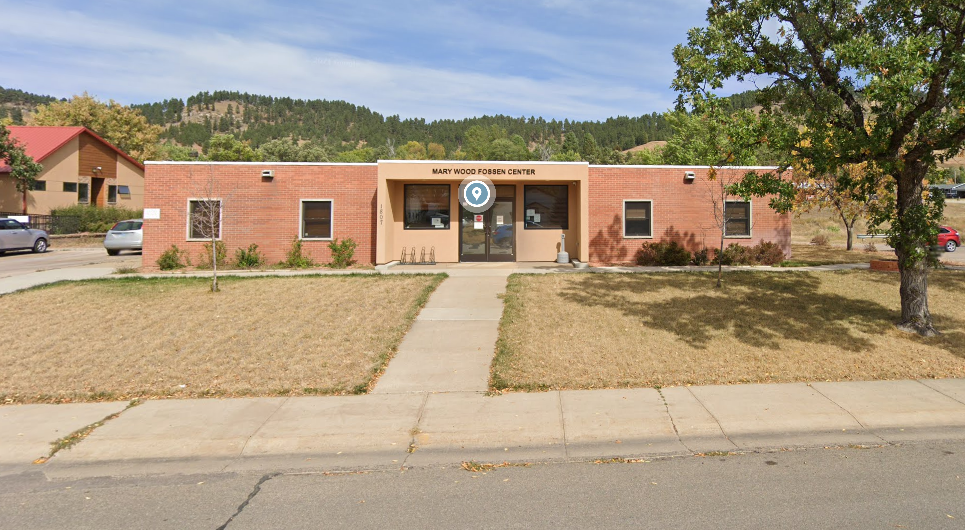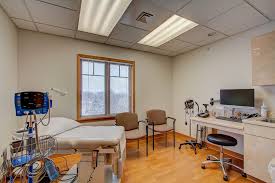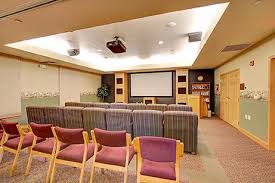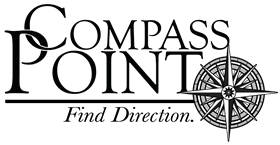Compass Point
Overview
Compass Point, a comprehensive rehabilitation facility in Sturgis, South Dakota, is dedicated to the treatment of co-occurring mental health disorders and drug and alcohol addiction. The center offers a variety of programs that are specifically designed to address the individual requirements of men and women aged 18 and older while they pursue recovery. Compass Point is dedicated to providing a structured and supportive environment that assists individuals in overcoming their mental health challenges and addictions.
The facility provides a diverse selection of treatment programs to accommodate varying levels of care. Among these are inpatient treatment, which offers a secure and organized environment for individuals who require intensive support, and outpatient treatment, which is tailored to individuals who can continue to fulfill their daily obligations while receiving ongoing therapeutic care. Those who require more frequent therapy and support without the necessity of residential treatment are provided with a higher level of care through the intensive outpatient program (IOP). Compass Point offers a specialized Adolescent Diversion Program that integrates Life Skills and TruThought, in addition to these programs. This program equips young individuals with the necessary tools to overcome obstacles and cultivate effective coping mechanisms.
It's therapeutic offerings are evidence-based and diverse, guaranteeing a comprehensive approach to recovery. The center employs Cognitive Behavioral Therapy (CBT) and Dialectical Behavioral Therapy (DBT), both of which are effective methods for assisting individuals in altering detrimental thought patterns and behaviors. The Crisis Intervention Team is prepared to offer immediate assistance in critical situations, guaranteeing that individuals in distress receive the assistance they require. Additionally, the center provides family, group, and individual therapy to address the emotional and relational aspects of addiction and recovery. The development of practical skills is essential for clients to maintain long-term recovery and enhance their overall quality of life, and life skills training is another critical component.
The center is the recipient of numerous accreditations, such as recognition from the South Dakota Department of Social Services, Division of Community Behavioral Health, and Department of Health. It is also accredited by national organizations, including the National Institute on Drug Abuse (NIDA), the National Institute on Alcohol Abuse and Alcoholism (NIAAA), and the Substance Abuse and Mental Health Services Administration (SAMHSA). The center's dedication to delivering the most effective and high-quality care in the addiction treatment field is evidenced by these accreditations.
Compass Point at a Glance
Payment Options
- Cash or self-payment
- Medicaid
- Private health insurance
- Federal, or any government funding for substance use treatment programs
- Sliding fee scale (fee is based on income and other factors)
Assessments
- Screening for tobacco use
- Comprehensive substance use assessment
- Interim services for clients
- Screening for mental disorders
- Screening for substance use
Age Groups
- Young adults
- Adults
- Adolescence program
Ancillary Services
- Specially designed program for DUI/DWI clients
- Assisted Outpatient Treatment
- Case management service
- Education services
Accreditations
SAMHSA certification for opioid treatment program (OTP):
SAMHSA's Opioid Treatment Programs (OTP) accreditation is a prestigious recognition that signifies a program's compliance with stringent standards and guidelines established by the Substance Abuse and Mental Health Services Administration (SAMHSA). This accreditation demonstrates an OTP's commitment to providing high-quality, evidence-based care for individuals struggling with opioid use disorder (OUD). It serves as a trusted symbol of accountability and excellence, assuring patients, families, and communities that the OTP offers safe, effective, and comprehensive treatment options for OUD.
State department of health:

Government agencies issue State Licenses, granting permission to rehabilitation organizations to conduct their business operations lawfully within specific geographic regions. Generally, the particular rehabilitation programs offered by a facility and its physical location dictate the necessary licenses needed for legal operation.
Treatment At Compass Point

Conditions Treated
Alcoholism:
Alcohol addiction is a health problem where drinking takes control over a person's life. It affects how their brain thinks and acts, leading to strong desires to drink, bad feelings, sudden actions, and discomfort when not drinking. To help someone with this problem, there are treatments like detox, counseling, group support, and learning coping methods. While treatment can't completely cure the urge to drink, it helps people regain control of their lives and feel better overall.
Substance use treatment:
Substance use rehabilitation represents a holistic treatment strategy tailored to aid individuals grappling with drug or alcohol addiction. This comprehensive rehabilitation method encompasses two key aspects: first, addressing the physical dependency, often commencing with detoxification, and second, tackling the psychological triggers through a range of therapeutic techniques. The ultimate aim is to empower individuals to attain and sustain sobriety while providing them with the necessary skills and coping mechanisms to successfully reintegrate into society and lead a life free from substance abuse.
Co-occurring Disorders:
Dual-diagnosis rehabilitation centers specialize in the treatment of individuals who suffer from a co-occurring mental health disorder and a substance use disorder. This complex interplay between addiction and mental health can make recovery more challenging, as each condition may exacerbate the symptoms of the other. Dual-diagnosis rehabilitation centers offer an integrated approach that addresses both issues simultaneously and often includes a comprehensive assessment for an Integrated Treatment Approach through Holistic Therapies, including family therapy and aftercare treatment.

Levels Of Care
Luxury Treatment:
Luxury rehab centers provide a premium and comfortable setting for individuals seeking addiction recovery and mental health treatment. Offering personalized care, serene surroundings, and amenities like spa treatments and gourmet dining, they blend expert support with a luxurious experience for holistic healing.
Outpatient:
Outpatient programs cater to individuals who are in good medical condition and are not at a heightened risk of relapse, including those who have successfully finished their inpatient treatment. These programs usually build upon clients' existing treatment strategies, providing ongoing addiction counseling and educational support for recovery. Individuals who enter outpatient care right after detoxification may also undergo medical and psychological evaluations, followed by the creation of personalized treatment plans. Most outpatient rehabilitation centers offer various levels of care tailored to meet each client's specific needs.
Short-term residential:
Short-term residential rehab programs offer intensive, shorter-duration treatment for individuals seeking recovery from substance abuse and addiction. Unlike long-term residential treatment, which can last for months or even years, short-term programs provide focused, goal-oriented care over a matter of weeks to a few months. These programs are ideal for individuals with time constraints or responsibilities and emphasize rapid stabilization, intensive therapy, and the development of essential coping skills, allowing clients to create a foundation for recovery and a personalized plan for ongoing sobriety.
Intensive outpatient treatment:
IOP, or Intensive Outpatient, is a structured level of care for addiction, mental health, or other conditions. Unlike inpatient care, it allows individuals live at home and maintain daily responsibilities. They attend multiple weekly sessions totaling 9-20 hours, including individual and group therapy, family counseling, and skill-building classes for symptom management and relapse prevention.
Regular outpatient treatment:
Traditional outpatient therapy typically involves attending one or two weekly sessions over the course of up to a year. These sessions are less frequent compared to other therapies, as outpatient therapy is designed for longer-term treatment. During these sessions, participants engage in group therapy or individual counseling, with a primary focus on identifying personal triggers and acquiring effective coping strategies.
Hospital inpatient treatment:
Inpatient treatment involves a comprehensive residential therapeutic program where patients stay on-site for a duration typically ranging from 30 to 90 days. This immersive environment offers structured support, ensuring safety and a focus on recovery. Therapies provided include individual and group counseling, cognitive-behavioral therapy, holistic treatments, family therapy sessions, and experiential therapies. The aim is to address addiction or mental health disorders' physical, emotional, and psychological aspects, laying a robust foundation for sustained healing.
Aftercare:
Finishing a drug or alcohol rehab program is not the conclusion of substance abuse treatment but rather a pivotal step toward long-term recovery. Aftercare encompasses devising a sustainable recovery plan coupled with enduring support. It may include sober living environments such as halfway houses, career counseling, and connecting patients with community support programs like Alcoholics Anonymous (AA) or Narcotics Anonymous (NA). This holistic approach ensures a smooth transition into a substance-free life while bolstering resilience against relapse.

Treatment Modalities
Cognitive behavioral therapy:
Cognitive Behavioral Therapy (CBT) is a therapeutic approach that emphasizes the interconnectedness of thoughts, emotions, and actions. It promotes healthy reactions to thoughts and emotions, steering individuals away from harmful responses such as substance abuse. Proven effective for various addiction recoveries, CBT enhances an individual's self-awareness and self-control. Through CBT, individuals learn to better gauge their emotional well-being, communicate more effectively, and handle stress without resorting to drugs or alcohol.
Substance use disorder counseling:
Substance use disorder counseling treatment modalities refer to various approaches and methods used in the counseling and treatment of individuals with substance use problems. This can include individual therapy, group therapy, cognitive behavioral therapy, motivational interviewing, family therapy, and 12-step programs. The goal is to help the individual overcome their substance use, develop healthy coping skills, and lead a fulfilling life in recovery.
Trauma-related counseling:
Trauma-related counseling is a specialized form of therapeutic intervention aimed at assisting individuals who have experienced distressing, life-altering events. This approach focuses on helping clients process their traumatic experiences, develop coping mechanisms, and rebuild a sense of safety and trust. Counselors trained in trauma therapy use evidence-based techniques to support healing and resilience, ensuring survivors can move forward and lead fulfilling lives despite their past adversities.
Smoking/vaping/tobacco cessation counseling:
Vaping Cessation Counseling is a specialized form of support designed to help individuals overcome their dependence on electronic cigarettes or vaping products. Through evidence-based strategies, personalized advice, and emotional support, counselors guide individuals towards a nicotine-free life, emphasizing the long-term health benefits of cessation.
Intervention Services:
Intervention is a set of structured processes or strategies designed to assist individuals in recognizing and addressing problematic behaviors, such as substance abuse, addiction, or mental health issues. These services typically involve a team of professionals or trained individuals who work collaboratively to guide and support the person in need and their loved ones, aiming to facilitate a pathway to recovery or appropriate treatment.
Group counseling:
Group Counseling is a therapeutic approach where individuals come together under the guidance of a trained counselor to share experiences, provide mutual support, and gain insights. It fosters a sense of community, promotes understanding through diverse perspectives, and offers personal growth and problem-solving strategies.
Family counseling:
Family Counseling is a therapeutic approach that seeks to address and improve communication, understanding, and dynamics within a family unit. By addressing conflicts, emotional distress, and behavioral challenges, a trained therapist provides guidance and tools for family members to strengthen bonds, resolve issues, and foster a healthier family environment.
Marital/couples counseling:
Marital/couples counseling treatment modalities refer to various therapeutic approaches used to help couples resolve conflicts, improve communication, and strengthen their relationship. These modalities can include cognitive-behavioral therapy, emotionally focused therapy, solution-focused therapy, and integrative approaches. The goal of these treatments is to help couples identify and address underlying issues and develop healthy relationship dynamics.
Life Skills:
Life skills training encompasses essential skills for individuals to navigate daily challenges successfully. This training includes time management, career guidance, money management, and effective communication, which are crucial for holistic addiction recovery. By mastering these skills, individuals are not only able to live substance-free but also thrive. Life skills training thus provides the practical tools for functional living in society, setting clients on a path toward lasting sobriety and success in life.
Relapse prevention:
The Relapse Prevention Model is a cognitive-behavioral approach designed to teach individuals who are trying to maintain behavioral changes (like sobriety from drugs or alcohol) how to anticipate and cope with the potential for relapse. The model emphasizes the importance of understanding the processes and triggers that lead to relapse, developing strategies to prevent initial lapse, and minimizing the severity and duration if a lapse occurs. It's grounded in the belief that relapses can be viewed as learning opportunities, helping individuals strengthen their commitment and skills to avoid future setbacks.
Individual psychotherapy:
Individual Psychotherapy provides a private, one-on-one setting where clients can explore and address their personal challenges, behaviors, and feelings related to addiction and recovery. With the guidance of a trained therapist, clients work to uncover the root causes of their substance use, develop coping strategies, and build a foundation for long-term recovery and personal growth.
Ancillary Services
Languages
- Sign language services for the deaf and hard of hearing
Additional Services
- Pharmacotherapies administered during treatment
- Mentoring/peer support
- Breathalyzer or blood alcohol testing
Special Programs
- Criminal justice (other than DUI/DWI)/Forensic clients
- Clients who have experienced trauma
Contact Information
DISCLAIMER: The facility name, logo and brand are the property and registered trademarks of Compass Point, and are being used for identification and informational purposes only. Use of these names, logos and brands shall not imply endorsement. BetterAddictionCare.com is not affiliated with or sponsored by Compass Point.




